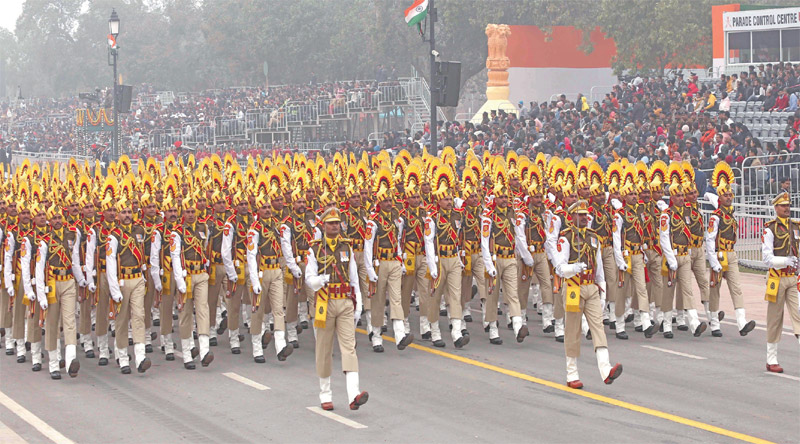CRPF plans to hire psychologists to strengthen mental health of its personnel, especially those guarding VIPs
Subhashis Mittra
Odisha minister Naba Kishore Das’s murder by an assistant sub-inspector of the state police in full public glare in Jharsuguda district in January acted as a trigger for the CRPF to take steps to de-stress its personnel.

The para-military force promptly issued an advertisement seeking to hire a professional psychologist to analyse various mental health parameters of its VIP security unit commandos. The force has a special VIP security wing with a strength of over 6,000 personnel and it guards more than 110 VVIPs, including prominent figures such as union home minister Amit Shah, Assam chief minister Himanta Biswa Sarma, his Uttar Pradesh counterpart Yogi Adityanath, and business tycoons Mukesh Ambani and Gautam Adani, among others.
The advertisement said the candidate should hold a master’s degree in clinical psychology or applied psychology from a recognised Indian or foreign university. It is ‘desirable’ that the applicant has a PhD in the said subject, three years work experience as a practising psychologist and below 40 years, the advertisement said.
A senior officer said since VIP security duties are a ‘zero-error and high stress and skill job,’ a psychological assessment of the commandos joining the unit at the time of entry and while serving was essential. Considering that VIP security tasks will multiply with the upcoming election season, including the Lok Sabha polls next year, a beginning has been made and the force is hopeful of getting good results by hiring the services of a professional psychologist.
An official said more such professionals could be engaged in the future for other specialised and regular units of the CRPF that are engaged in combat theatres like anti-Naxal operations, counter-terrorist offensive in Jammu and Kashmir and counter-insurgency tasks in the northeastern states.
Mental stress owing to various reasons like staying away from family, tough postings and denial of leave often lead to suicidal and fratricidal tendencies among personnel. To tackle these issues, the Ministry of Home Affairs asked all Central Armed Police Forces (CAPFs) comprising the CRPF, BSF, SSB, ITBP, CISF, Assam Rifles and the NSG to ensure that all personnel get 100 days leave a year. The MHA also asked the CAPFs to develop a software-based transfer-posting system so that troopers get a ‘peace’ posting after three years of ‘hard’ tenure. But both the orders are yet to be implemented in letter and spirit.
A task force has been set up to identify relevant risk factors as well as risk groups and suggest remedial measures for the prevention of suicides and fratricides in the CAPF and the Assam Rifles. The report of the task force is awaited.
The CRPF’s move to hire a professional psychologist is not the first time the force has attempted to understand the difficulties of its personnel. Many other such attempts have been made to de-stress its personnel caused by service conditions, living arrangement and personal/individual issues.
Two years ago, Indian Institute of Management, Lucknow, experts studied the occupational stress and strain of CRPF personnel. Regular yoga classes, daily exercises, counselling and other remedial measures are already in place but something more needs to be done, a senior CRPF official said.
Recently, its DIG (Welfare) sent an action plan to all sector headquarters urging them to conduct programmes on mental health awareness, financial literacy and appointing a family liaison officer in each unit/company. The DIG’s letter followed a meeting with CRPF director general Dr Sujoy Lal Thaosen, where the welfare branch also discussed a medical support system for families at home and special care and treatment for psychiatric disorders.
The DIG’s action plan was prompted by suicide cases in the force—54 in 2020, 57 in 2021 and 43 in 2022. Home ministry data also shows that the total number of psychiatric patients increased from 3,584 in 2020 to 4,940 in 2022, marking a 38 per cent spike. In 2021, as many as 3,864 cases were reported.
“It was later decided that a centralised mental health care centre can be considered for (the) CRPF by designating one of its base hospitals/composite hospitals,” the DIG said in his letter. “All the sector headquarters have been asked to conduct awareness programmes on mental health with specification to psychological disorders, suicidal tendencies etc., during basic in-service trainings and at all forums,” he said.
You must be logged in to view this content.

